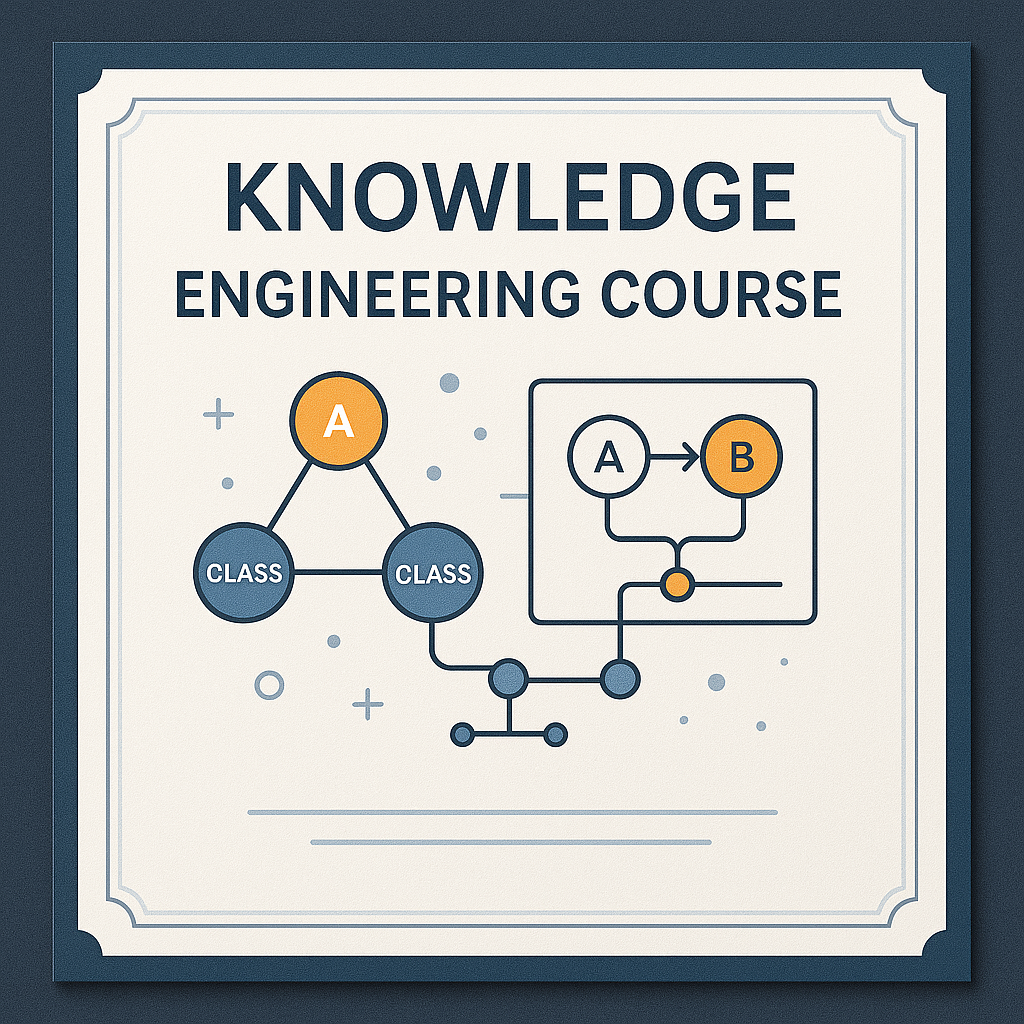This course focuses on ontology development and knowledge engineering, teaching learners how to formally model knowledge for enterprise and AI applications. Aimed at those who want to become ontology engineers or knowledge architects, it covers building ontologies from the ground up, using semantic standards to ensure shared understanding of data. Students will practice using tools to create ontologies (classes, properties, relationships), learn about reasoning and validation, and see how well-designed knowledge models drive intelligent systems. (Ideal for professionals in data management, AI, or those with Semantic Web basics looking to specialize in knowledge modeling.)
Curriculum:
Module 1: Foundations of Knowledge Engineering – Historical overview of knowledge engineering in AI, key definitions, and the role of ontologies and taxonomies in structuring knowledge.
Module 2: Ontology Development Fundamentals – Step-by-step process of ontology creation: defining classes, properties (object/datatype properties), and individuals; understanding hierarchy (subclasses) and relationships in an ontology.
Module 3: Web Ontology Language (OWL) in Depth – Detailed coverage of OWL features (classes, restrictions, logical axioms like equivalence, disjointness, inverse properties) and how they enable rich knowledge representation.
Module 4: Tools & Best Practices – Hands-on ontology building with Protégé (creating and visualizing ontologies), leveraging ontology design patterns, and adopting best practices for maintainable and reusable ontologies.
Module 5: Reasoning and Inference – Introduction to semantic reasoners (e.g., HermiT, Pellet) and how they infer new knowledge from ontologies; using reasoning to check ontology consistency and enrich data with implicit facts.
Module 6: Validation and Governance – Using SHACL or other schema/constraint languages to validate data against ontologies, and discussing governance of knowledge models (versioning, collaborative ontology development).
Module 7: Knowledge Engineering in Practice – Integration of ontologies into real-world applications (knowledge graphs in enterprises, semantic search systems, etc.), and a mini-project where learners design a small ontology for a chosen domain and populate it with example data.
